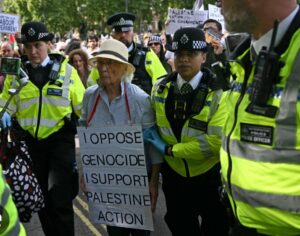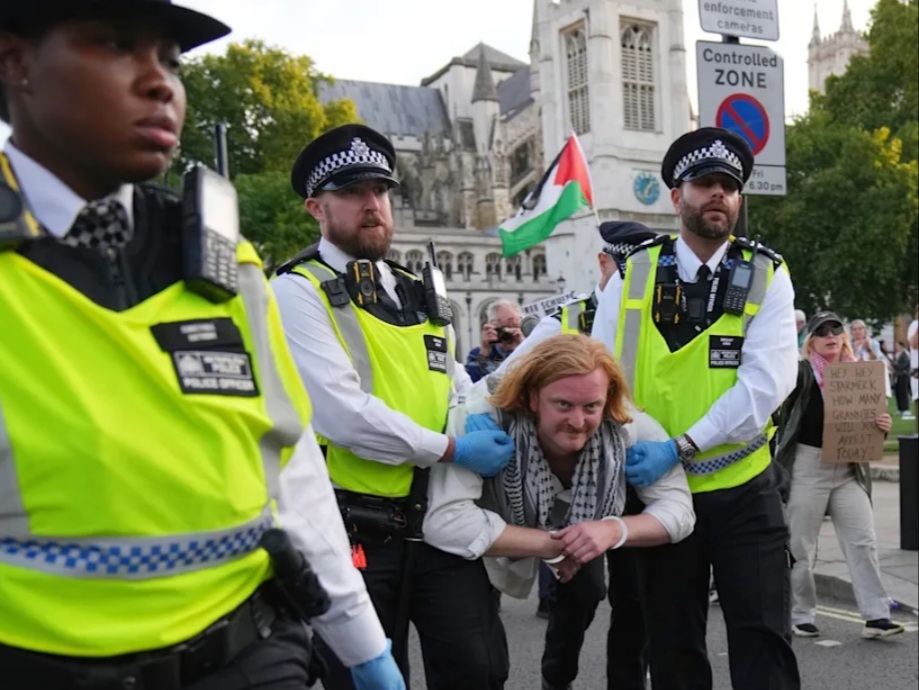By: Engineer Bakht Said Yousafzai
London police arrested nearly 500 people during a large pro-Palestine protest in Trafalgar Square, one of the largest mass arrests at a UK demonstration in recent years. The rally went ahead despite appeals to postpone following the Manchester synagogue terror attack earlier this week.
Thousands gathered waving Palestinian flags, chanting slogans, and holding banners demanding justice and changes to UK foreign policy. While many attended peacefully, police said a significant number engaged in offences linked to public order and the display of symbols from banned groups. Those arrested were aged between 18 and 89.
The Metropolitan Police defended their actions, stressing that while protest is a democratic right, crossing into support for proscribed organisations will not be tolerated. Assistant Commissioner Matt Twist said: “We will not allow proscribed groups to operate openly in the UK.”
Tensions rose as officers clashed with protesters after chants linked to extremist groups were heard. Footage online showed scuffles, with police accused of heavy-handed tactics. Protest organisers argued the demonstration was peaceful and accused authorities of suppressing dissent.
Home Secretary Shabana Mahmood praised police for their “swift and decisive action,” while civil liberties groups questioned whether the response was proportionate, warning it could have a “chilling effect” on the right to protest.
The timing of the protest drew criticism from Jewish community leaders, who called it insensitive so soon after the Manchester attack. Supporters defended the decision, saying the rally focused on humanitarian concerns and foreign policy, not domestic hostility.
Opposition politicians offered mixed reactions, balancing support for protest rights with concern for public safety. Liberal Democrat leader Ed Davey urged dialogue between government, police, and community groups to avoid further tensions.
International responses were also divided. Some praised the UK for taking a hard line against extremism, while human rights groups abroad expressed alarm at the scale of the arrests.
With nearly 500 people now facing potential legal proceedings, the aftermath is expected to unfold over months. Campaigners say the protest has deepened Britain’s debate over free expression, extremism, and the boundaries of lawful dissent.
For now, London remains at the centre of a heated conversation: how to protect the right to protest while ensuring public safety in a time of rising division.





